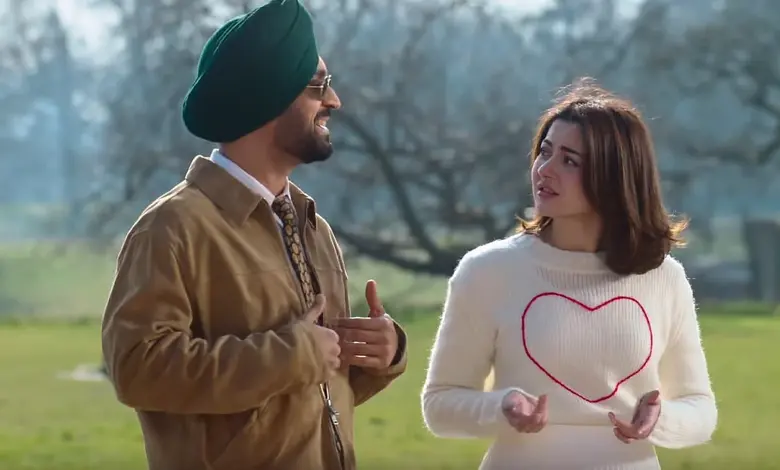Diljit Dosanjh Tackles Backlash Over ‘Sardaar Ji 3’ and Hania Aamir at Electrifying Malaysia Show: ‘I Swallowed My Words’

In a candid moment during his high-energy concert in Kuala Lumpur, Malaysia, Punjabi superstar Diljit Dosanjh opened up about the swirling controversy surrounding his upcoming film Sardaar Ji 3 and its Pakistani co-star Hania Aamir. The performer, who has endured waves of backlash since the trailer’s June 22 release spotlighted Aamir’s role, drew parallels to recent geopolitical tensions, including the devastating Pahalgam terror attack on April 22, 2025. Speaking directly to the crowd in Punjabi, Dosanjh revealed he held back a torrent of responses amid the uproar, choosing restraint over retort.
The uproar intensified after the Pahalgam incident, which claimed lives and heightened India-Pakistan frictions, leading Indian film associations to demand a full ban on Sardaar Ji 3’s domestic release. The movie, shot in February when cross-border relations appeared stable, skipped Indian theaters entirely and debuted overseas on June 27. Dosanjh, reflecting on the timeline during his set, noted the irony: “When my film Sardaar Ji 3 was shot in February, the matches were being played.” He then pivoted to the tragedy, emphasizing unwavering solidarity: “After that, the tragic Pahalgam terror attack happened. At that time, and even now, we have always prayed that the terrorists should receive the strictest punishment.”
To underscore the point, Dosanjh invoked the Asia Cup cricket clash on September 14, where India clinched a seven-wicket win over Pakistan—their first encounter since the attack. “The difference is that my film was shot before the attack, and the match was played afterwards,” he said, his voice steady amid the cheers. “I have many answers, but I kept quiet, kept everything inside me. I didn’t speak. I have many answers. Whoever tells you anything, you shouldn’t take that poison inside you. I’ve learnt that from life. So I didn’t say anything… There are a lot more things to say, but I don’t want to do that, I don’t want to do that s***.”
Dosanjh didn’t shy away from calling out the media’s role in the fray. “The national media tried their best to portray me as anti-national,” he stated firmly, “but Punjabis and the Sikh community could never go against the nation.” This echoes his earlier defense in an interview with BBC Asian Network, where he clarified the project’s origins: “When this film was made, everything was fine. We shot it in February, and things were okay back then. After that, a lot of major events happened that were beyond our control. So the producers decided that the film obviously wouldn’t be released in India, and instead opted for an overseas release. The producers had invested a lot of money, and when the film was being made, none of this was happening.”
He elaborated on the financial toll: “They know there will be a loss because you’re removing an entire territory. Even when I signed the film, everything was fine. Now the situation is not in our hands. So if the producers want to release it abroad, I support them.” Regarding Aamir, Dosanjh praised her professionalism: “Very good. She’s very professional. I really respect her work and her privacy. I’m a very private person myself, and I give everyone their space, especially women. Conversations are always to the point; nothing more.”
Dosanjh’s Malaysia appearance marks a pivotal moment, blending artistry with advocacy as he navigates fame’s sharper edges. With Sardaar Ji 3 stirring debates on cultural exchange amid conflict, his words serve as a measured plea for context over condemnation, reminding fans that timing can upend intentions overnight.




